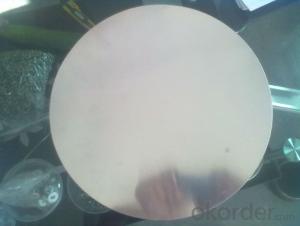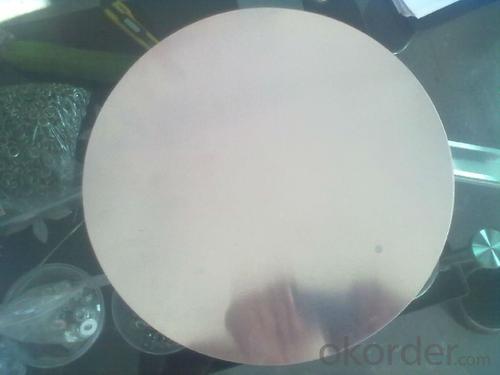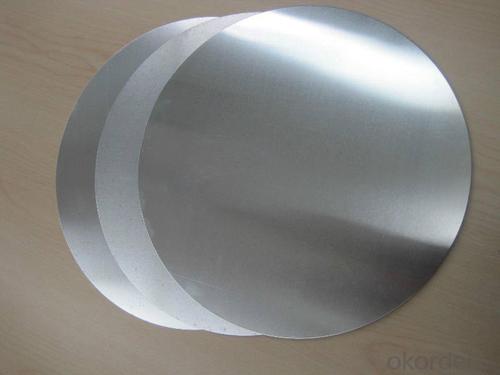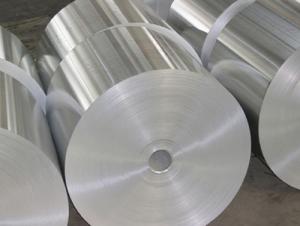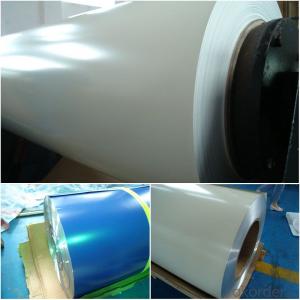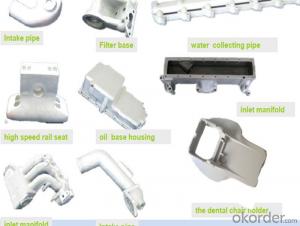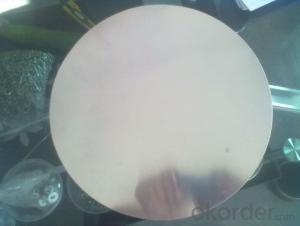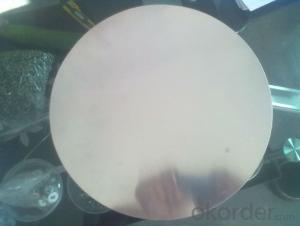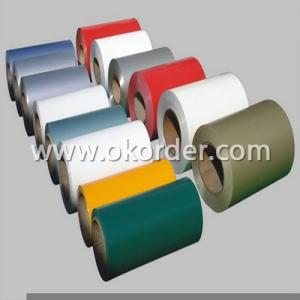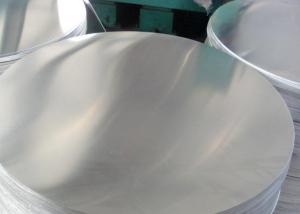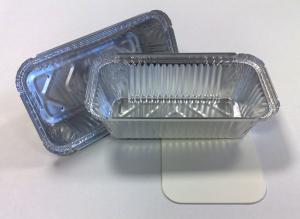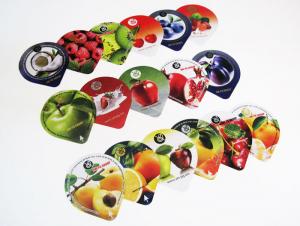Aluminum AA1060 C.C Aluminum Circles for Cookware
- Loading Port:
- Shanghai
- Payment Terms:
- TT OR LC
- Min Order Qty:
- 5 m.t.
- Supply Capability:
- 10000 m.t./month
OKorder Service Pledge
OKorder Financial Service
You Might Also Like
1.Structure of AA1060 C.C Aluminum Circles used for Cookware Description
AA1060 C.C Aluminum Circles used for Cookware is made from aluminum coils 1xxx. AA1060 C.C Aluminum Circles used for Cookware has great ductility, heat conductivity, anti-corrosion and moisture resistance properties.
AA1060 C.C Aluminum Circles used for Cookware are widely used for kitchen wares including fried pans, non-sticky pans, cooking pots,hard anodized cookware, pressure cooker and house hold utensils.
2.Main Features of AA1060 C.C Aluminum Circles used for Cookware
• Superior quality of raw material
• Reasonable and stable chemical composition
• Accurate tolerance
• Goode mechanical property
3.AA1060 C.C Aluminum Circles used for Cookware Images
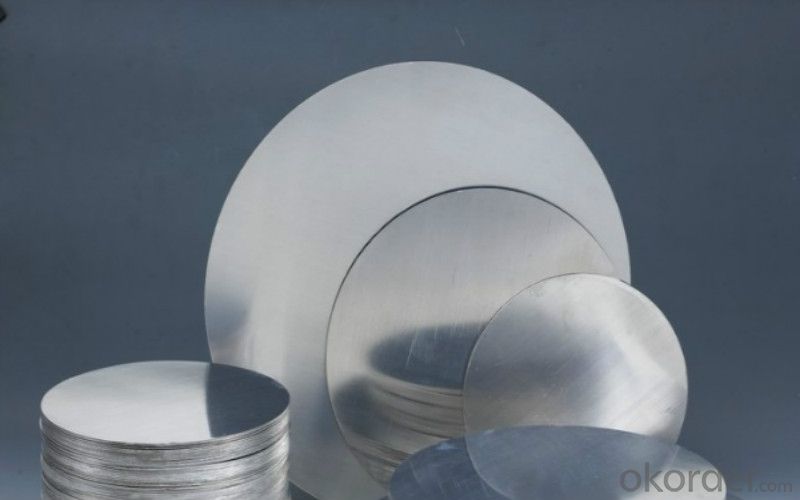
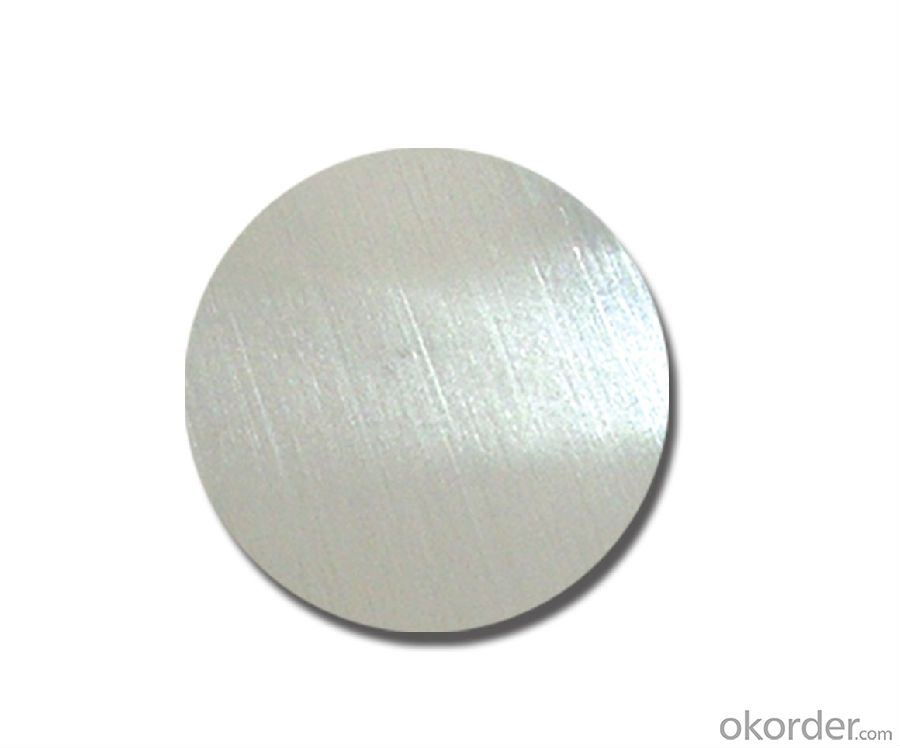
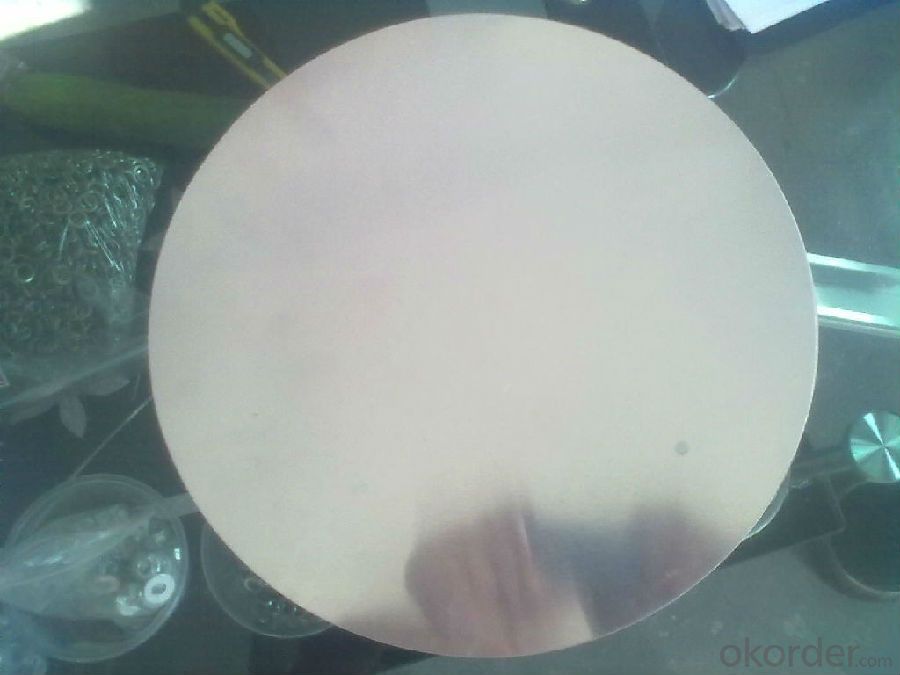
4.AA1060 C.C Aluminum Circles used for Cookware Specification
Alloy | AA1060 |
Temper | H14, H16, H18, H22, H24, H26, H32, O/F |
Thickness | 0.5mm -- 4mm |
Diameter | 200mm -- 1200mm |
Standard | GB/T 3880-2006 |
5. FAQ of AA1060 C.C Aluminum Circles used for Cookware
A.How to guarantee the quality?
Customers are welcome to our mill to visit and check the products. Besides, we can arrange a third party to test AA1060 C.C Aluminum Circles used for Cookware.
B.When will you deliver the products?
AA1050 C.C Aluminum Circles used for Cookware will be delivered within 35 days after receiving advanced payment or original L/C.
- Q: Is it possible to utilize aluminum as a component in battery technology?
- <p>Yes, aluminum can be used in batteries. Aluminum-air batteries are a type of metal-air battery that uses aluminum as the anode. These batteries have a high energy density and are lightweight, making them suitable for certain applications. However, they also have challenges such as the need for a specific electrolyte and issues with aluminum corrosion, which limit their practical use compared to more common battery technologies like lithium-ion batteries.</p>
- Q: Explain the connection between aluminum and its interaction with electromagnetic radiation.
- <p>Aluminum has a unique relationship with electromagnetic radiation due to its reflective and conductive properties. It is a good reflector of visible light and infrared radiation, which is why it is used in applications such as mirrors and reflective coatings on windows to reduce heat transfer. Additionally, aluminum's high electrical conductivity makes it an excellent shield against electromagnetic radiation, as it can absorb and reflect a significant amount of electromagnetic waves. This property is utilized in various industries, including electronics and aerospace, to protect sensitive equipment from electromagnetic interference.</p>
- Q: This question asks if there is a risk of lead contamination from old aluminum cans when they are recycled into new food containers.
- <p>There is no risk of lead leaching from old aluminum cans into food during recycling. Aluminum cans are made of aluminum and do not contain lead. The recycling process involves melting and re-forming the aluminum, which effectively removes any potential contaminants. Lead was used in some can linings in the past, but modern food cans are lined with non-toxic materials. Therefore, recycled aluminum cans pose no lead leaching risk to food safety.</p>
- Q: What precautions should be taken when using aluminum containers for food and beverages to ensure safety?
- <p>When using aluminum containers for food and drink, safety measures include avoiding prolonged storage of acidic or alkaline foods, as they can cause aluminum leaching. Do not heat aluminum containers in a microwave or expose them to high temperatures, as this can also lead to aluminum release. Regularly inspect containers for signs of wear or damage, as these can increase the risk of contamination. Always use food-grade aluminum containers and avoid using them for non-food items. Washing aluminum containers with mild detergents and avoiding abrasive cleaners can also help maintain their integrity and safety.</p>
- Q: What are some typical combinations of metals that are used to create aluminum alloys?
- <p>Common alloys used for aluminum include 1000 series, which are nearly pure aluminum. The 2000 series, which contains copper, is known for its strength. The 3000 series, with manganese, is good for its formability. The 5000 series, which contains magnesium, offers good strength and welding characteristics. The 6000 series, which includes silicon and magnesium, is known for its strength and resistance to corrosion. Lastly, the 7000 series, which contains zinc, is the strongest and most commonly used for structural applications. These alloys are chosen for their specific properties such as strength, corrosion resistance, and workability, depending on the application.</p>
- Q: What is the chemical formula that represents aluminum?
- <p>The chemical formula for aluminum is Al. It is a lightweight, silvery-white metal that is found in the Earth's crust and is the most abundant metal there. Aluminum is a member of the boron group of chemical elements and is represented by the symbol Al, which is derived from the Latin word 'alumen', meaning alum.</p>
- Q: This question asks about the potential health and safety risks associated with exposure to aluminum.
- <p>Aluminum exposure can lead to several safety issues. Chronic exposure may lead to neurological problems, including cognitive dysfunction and Alzheimer's disease, though the link is still debated. It can also cause bone diseases by leaching calcium from bones. Aluminum may contribute to kidney dysfunction and anemia. In occupational settings, inhalation of aluminum dust can lead to respiratory issues. It's important to note that the human body naturally eliminates aluminum, and the risk of toxicity is generally low under normal conditions. However, in certain medical conditions or with high exposure, aluminum can accumulate and pose health risks.</p>
- Q: This question asks for examples of industrial processes that incorporate the use of aluminum.
- <p>Aluminum is widely used in various industrial processes due to its lightweight, corrosion resistance, and high strength-to-weight ratio. Some key industrial processes that utilize aluminum include the automotive industry for manufacturing car parts, the aerospace industry for aircraft construction, the construction industry for building materials, the packaging industry for food and beverage cans, and the electronics industry for components in devices. Aluminum is also used in the manufacturing of machinery, electrical equipment, and transportation equipment. Its versatility makes it a crucial material in many industrial applications.</p>
- Q: This question asks whether the energy consumption for producing recycled aluminum is lower compared to the production of new aluminum.
- <p>Yes, producing recycled aluminum requires significantly less energy than producing new aluminum. Recycling aluminum uses only about 5% of the energy needed to produce primary aluminum from bauxite ore. This is because recycling involves melting and recasting the metal, which is a much less energy-intensive process than mining, refining, and smelting new aluminum. As a result, recycling aluminum helps conserve energy and reduces greenhouse gas emissions associated with aluminum production.</p>
- Q: This question asks for a comparison between aluminum and magnesium, two common metallic elements, highlighting their differences.
- <p>Aluminum and magnesium are both lightweight metals with distinct properties. Aluminum is more abundant in the Earth's crust and is known for its high strength-to-weight ratio, making it ideal for construction and transportation. It is also a good conductor of heat and electricity. Magnesium, while also lightweight, is less dense and has a lower melting point than aluminum. It is highly reactive and is often used in alloys to increase strength and durability. Magnesium is also essential for biological processes and is commonly found in supplements. In terms of reactivity, magnesium is more reactive than aluminum, which makes it more prone to corrosion in certain environments.</p>
Send your message to us
Aluminum AA1060 C.C Aluminum Circles for Cookware
- Loading Port:
- Shanghai
- Payment Terms:
- TT OR LC
- Min Order Qty:
- 5 m.t.
- Supply Capability:
- 10000 m.t./month
OKorder Service Pledge
OKorder Financial Service
Similar products
Hot products
Hot Searches
Related keywords
